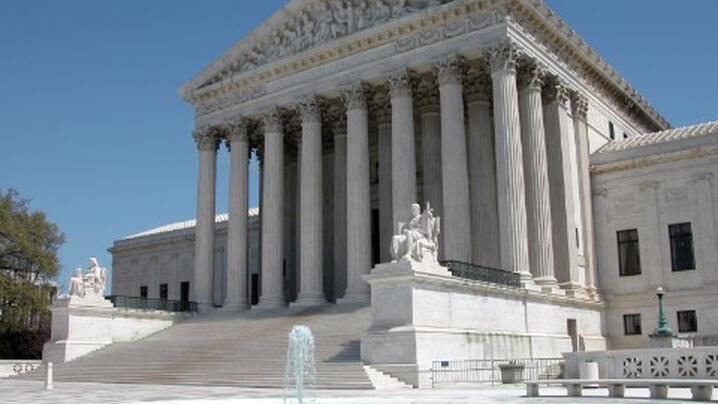
The issue the Supreme Court will decide in Shurtleff v. City of Boston is whether flying a flag on a flagpole owned by a government entity is government speech. The State and Local Legal Center (SLLC) filed an amicus brief in this case arguing that it is.
Boston owns and manages three flagpoles in an area in front of City Hall. Boston flies the United States and the POW/MIA flag on one flagpole, the Commonwealth of Massachusetts flag on another flagpole, and its own flag on a third flagpole.
Third parties may request to fly their flag instead of the city’s flag in connection with an event taking place within the immediate area of the flagpoles. Camp Constitution asked the city twice to fly its Christian flag while it held an event near the flag. The city refused its request to avoid government establishment of religion.
The First Circuit held that flying a third-party flag on a City Hall flag poll is government speech.
According to the First Circuit, in two previous cases (Pleasant Grove City v. Summum (2009) and Walker v. Texas Division, Sons of Confederate Veterans (2015)) the Supreme Court has developed a three-part test for determining when speech is government speech. The Court looks at the history of governmental use, whether the message conveyed would be ascribed to the government, and whether the government “effectively controlled” the messages because it exercised “final approval authority over their selection.”
Regarding the history of governments using flags, the First Circuit stated, “that a government flies a flag as a ‘symbolic act’ and signal of a greater message to the public is indisputable.”
The First Circuit also concluded an observer would likely attribute the message of a third-party flag on the city's third flagpole to the city because if its location.
The First Circuit had no difficulty concluding the city controlled the flags. “Interested persons and organizations must apply to the city for a permit before they can raise a flag on this flagpole.”
Camp Constitution argues the Supreme Court should apply First Amendment forum analysis, not the government speech doctrine, in this case. According to Camp Constitution, City Hall flagpoles are a designated public forum where viewpoint discrimination, including discrimination against a religious viewpoint, is prohibited.
The SLLC argues in its amicus brief that a local government flying a third-party flag is government speech. According to the brief: “Local governments should be allowed to exercise broad control over the third-party flags flown on their flagpoles. Third-party flags express messages wherever flown. However, when flown on a government flagpole, third-party flags convey additional messages, often of unique importance, from the local government that owns the flagpole, and the local government should be permitted to exercise broad control over such messages. If raising third-party flags were deemed automatically to create a forum for private speech . . . local governments would lose such control, which would discourage them from flying third-party flags, and valuable government speech would be lost.”
The SLLC amicus brief was joined by ICMA, National Association of Counties, National League of Cities, U.S. Conference of Mayors, and International Municipal Lawyers Association.
New, Reduced Membership Dues
A new, reduced dues rate is available for CAOs/ACAOs, along with additional discounts for those in smaller communities, has been implemented. Learn more and be sure to join or renew today!

